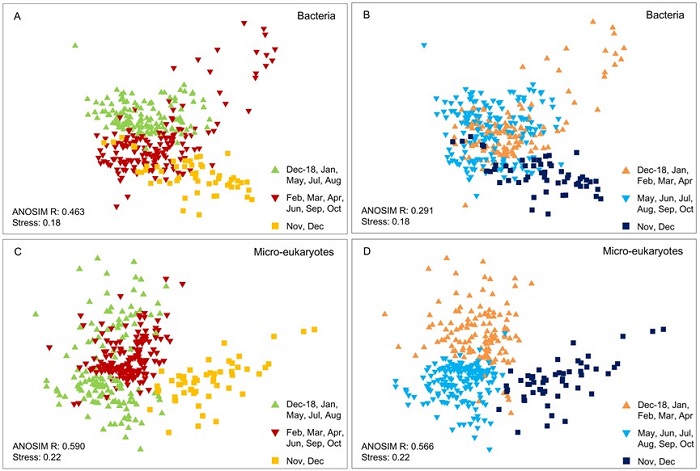Researchers Reveal Complex Microbial Communities Respond to Wastewater Fluctuations
Microbial communities in constructed wetlands (CWs) sediments are often disturbed by wastewater. It is necessary for the microbial community to maintain a relatively stable composition or biomass in order to continue to remove pollutants from wastewater.
A research group led by Prof. Wu Jinshui from the Institute of Subtropical Agriculture (ISA) of the Chinese Academy of Sciences (CAS) and Fuzhou University has investigated bacterial and micro-eukaryotic community composition change in CWs over one year. Now they have highlighted complex processes of wastewater treatment by microbial components in Full-scale surface flow constructed wetlands (SFCWs).
The study published in Bioresource Technology on March 23.
According to the researchers, wastewater fluctuations caused significant seasonal changes in the composition of bacterial and micro-eukaryotic communities. However, the abundance of 16S rRNA, nitrification and denitrification genes remained relatively stable in different seasons.
In addition, with the decrease of nitrogen concentration in wastewater, the microbial community composition of CWs was also changing from heterotrophic to autotrophic. At the same time, it was also found that micro-eukaryotic communities were more sensitive to wastewater fluctuations than bacterial communities.
"This study improves our understanding of the mechanism of functional stability maintenance of microbial community in CWs in Southern China," said Prof. Li Yuyuan, corresponding author of the study. " These findings also provide potential guiding significance for the research and development of CWs function enhancement technology."
Contact: Xi Li
E-mail: lixi@isa.ac.cn

Seasonal variation of bacterial and micro-eukaryotic community composition in CWs. (Image by Li et al.)
Download attachments: